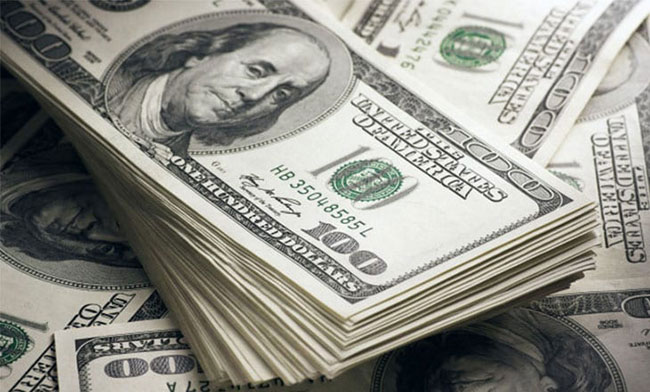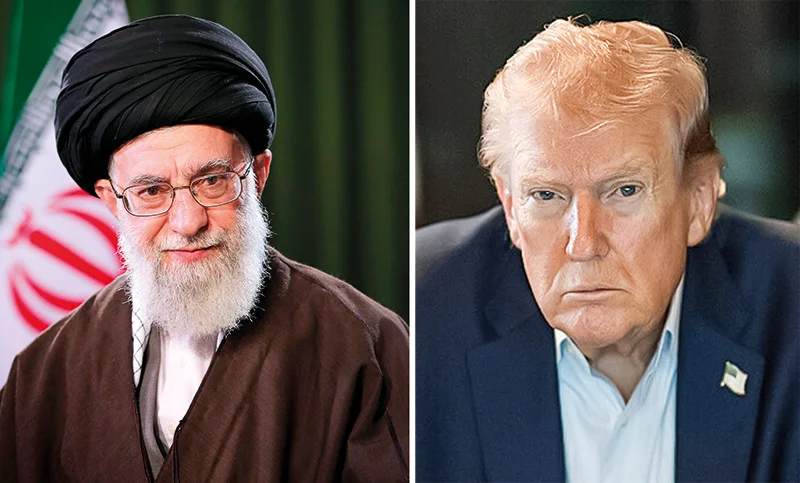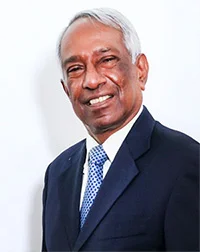Features
Fixing the dollar exchange rate: A major mistake

by Romesh Dias Bandaranaike, Ph.D.
Until September last year the US Dollar (USD) – Sri Lanka Rupee (SLR) exchange rate was determined on the basis of a “managed float.” This meant that demand and supply of USD in the market were the primary determinants of the exchange rate. Official (Central Bank) market intervention, by way of sale or purchase of USD in limited quantities, smoothed out any large fluctuations in the exchange rate, when needed.
In September 2021 the Central Bank (CB) set an upper limit of SLR 203 per USD that authorized dealers in foreign exchange, including banks, must adhere to for all foreign exchange transactions. This restriction, now in effect for five months, has had severe adverse impacts on the functioning of the Sri Lankan economy.
Since the demand for USDs has been higher than the supply of USDs at the upper limit of SLR 203 per USD, the CB restriction essentially results in the exchange rate being “fixed” at this rate. Banks have been compelled to address this shortage, by restricting allocation of their inadequate USDs among customers for all permitted foreign expenditures, at this “fixed” rate. The shortage has worsened substantially over the past months. In response, the CB, while stubbornly maintaining the “fixed” rate, has issued a number of additional directives, which have failed to address the adverse consequences of this shortage, as detailed below.
When the demand for a foreign currency exceeds its supply in any country, the fixed official exchange rate does not allow market adjustment to reflect that difference. The natural consequence is the emergence of an alternative market for the currency in shortage, commonly termed a “black market.” Such a black market has recently developed in Sri Lanka with USDs “selling” in excess of SLR 240 per USD compared with the “official” rate of SLR 203.
Migrant Remittances: Sri Lanka’s single largest source of USDs are remittances from migrant workers abroad, primarily in the Middle East. Informal currency transfer arrangements for workers in the Middle East from many South Asian countries (Pakistan, Bangladesh, Nepal, etc.) have been in place for decades, since many such workers did not have bank accounts in their home countries. These arrangements, termed “Hawala” and “Undiyal” are very reliable. Workers hand over foreign currency in the country where they work and the designated person in the home country is given the money in local currency at the agreed exchange rate.
In the past, most Sri Lankan workers did not resort to such arrangements because they had bank accounts in Sri Lanka to which they transferred their foreign earnings at a realistic official exchange rate. With the recent significant price difference between the official and black market rates for the USD, the Hawala/Undiyal arrangements have provided a ready alternate avenue for Sri Lankan workers. As more of these workers became aware of the alternate option, remittances through the banking system have declined precipitously, from USD 600-700 million per month, to USD 200-300 million per month.
The CB tried to reduce this decline by initially offering SLR 2 per USD over the “official” rate for worker remittances, and later an additional SLR 8 per USD. When remittances declined further, the Central Bank tried to “threaten” workers by saying that using alternate methods were illegal and may even be funding “drug dealing.” In November 2021, foreign worker remittances through official channels had declined by USD 340 million compared with November 2020. While the official exchange rate remains misaligned to market demand and supply, this loss will only increase as more workers become aware of alternate avenues. The adverse impact on Sri Lanka’s foreign exchange earnings will be a staggering USD 4 billion per year. This alone should be reason enough to dispense with the “fixing” of the exchange rate.
Export Earnings: With the fixing of exchange rates, exporters have been delaying the repatriation of their export earnings for as long as possible, till the CB is finally forced to succumb to the pressure and let the currency float. The CB has introduced more and more regulations to push exporters to bring back these funds to Sri Lanka and mandatorily convert portions of these amounts to SLRs. Despite all CB regulations, the USDs officially coming into the country from exports is less than if the currency was allowed to find the level at which supply and demand balance.
Tourist Earnings: With better control of the Covid-19 pandemic, tourist numbers have increased substantially in December and January, though not to pre-pandemic levels. When it became apparent that tourists too were converting their foreign currencies into SLRs in the black market, the CB required tourists to pay their bills at all registered tourist hotels and guest houses in foreign currency. The attractiveness of Sri Lanka as a tourist destination depends on the costs incurred by tourists in their own currencies. If they officially receive less SLRs for their currencies than with a realistic exchange rate, this will discourage some fraction of tourists from visiting Sri Lanka, which, in turn, will reduce tourist foreign currency inflows.
Shipping and Airlines: As a result of the severe USD shortage, banks are restricting foreign exchange for local agents of shipping and airlines who seek foreign exchange to pay their principals for services provided, after collecting payments in SLRs from clients. Kuwait Airways has already stopped its flights to Sri Lanka. Others will also reduce flights if not paid for tickets sold or goods air freighted. Shipping lines will soon by-pass Sri Lanka as a destination if not paid for their services. The country will face severe economic repercussions from these trends.
Foreign Investments: The Colombo Stock Exchange indices have grown significantly over the past year, totally on the back of local investors. Foreign investors have been very large net sellers. The original foreign investments were made on condition that the foreign investors could freely convert revenue from sale of shares and from dividends back to the currencies they originally brought in for investments. These sellers now face difficulty when trying to remit their sales proceeds in foreign currencies, because of the shortage. One can only imagine the negative impact this will have on investor confidence and any potential new investments.
“Illusory” Benefit: The most often cited “benefit” of fixing the exchange rate at an artificially low rate is that this would control price increases in imported food and other consumer items. This is an illusion. Many importers can only obtain foreign exchange to import such items in the black market. The rates paid for such exchange is further increased beyond the open market rate because of another CB regulation (see below). When importers persuade banks to open LCs for imports and the banks are late in meeting their obligation to pay the LCs after the goods have arrived in the Port, importers incur large demurrage costs. This increases the final consumer price, even if the LC is paid for at the official exchange rate.
Foreign Currency Grab by CB: The CB has introduced a regulation in terms of which any bank which converts SLRs to foreign currency for one of its clients must give the CB foreign currency equivalent to 25% of the converted amount at the official rate. An importer desperate to obtain foreign exchange for any critical need, such as urgent spares to repair machinery, arranges to pay an exporter having USD a premium above the official rate, if the exporter agrees to bring in USD into the exporter’s local bank at the official rate. The importer then asks the same local bank to open an LC on his behalf and use the funds he has arranged for (although it is brought into the exporter’s account) to pay for the urgent import. Because of the CB’s 25% regulation, the bank typically asks the importer to arrange for an extra 25% beyond the LC amount. This effectively means that instead of paying a premium of SLR 37 (say) over SLR 203, it costs the importer a further 25% (SLR 9.25) per USD to fund his LC. In essence, the CB is now asking importers desperate for foreign exchange to purchase an additional 25% on behalf of the CB and to meet the cost of the premium; effectively a “black market” deal on behalf of the CB!
The CB has also, by decree, forced private banks to allocate a share of their limited foreign exchange for the import of fuel, for vehicles and for operating the CEB’s thermal power plants. LCs for such imports were previously opened through the two state banks, which no longer have sufficient funds for this purpose, because of the fixed exchange rate. This has further reduced the foreign exchange available to private banks to service their own customers.
It is abundantly clear to any person with a modicum of sense, although clearly not to the Central Bank, that its attempts to artificially control the exchange rate by diktat is having a massive adverse impact on the functioning of the economy, without any worthwhile offsetting benefits. Will the CB ever come to its senses and let the USD find its true rate to save the country from further misery?
[The author is an economist with extensive experience at CEO level, in both public and private sectors.]
Features
A long-running identity conflict flares into full-blown war

 It was Iran’s first spiritual head of state, the late Ayatollah Khomeini, who singled out and castigated the US as the ‘Great Satan’ in the revolutionary turmoil of the late seventies of the last century that ushered in the Islamic Republic of Iran. The core issue driving the long-running confrontation between Islamic Iran and the West has been religious identity and the seasoned observer cannot be faulted for seeing the explosive emergence of the current war in the Middle East as having the elements of a religious conflict.
It was Iran’s first spiritual head of state, the late Ayatollah Khomeini, who singled out and castigated the US as the ‘Great Satan’ in the revolutionary turmoil of the late seventies of the last century that ushered in the Islamic Republic of Iran. The core issue driving the long-running confrontation between Islamic Iran and the West has been religious identity and the seasoned observer cannot be faulted for seeing the explosive emergence of the current war in the Middle East as having the elements of a religious conflict.
The current crisis in the Middle East which was triggered off by the recent killing of Iranian spiritual head of state Ayatollah Ali Khamenei in a combined US-Israel military strike is multi-dimensional and highly complex in nature but when the history of relations between Islamic Iran and the West, read the US, is focused on the religious substratum in the conflict cannot be glossed over.
In fact it is not by accident that US President Donald Trump resorts to Biblical language when describing Iran in his denunciations of the latter. Iran, from Trump’s viewpoint, is a primordial source of ‘evil’ and if the Middle East has collapsed into a full-blown regional war today it is because of the ‘evil’ influence and doings of Iran; so runs Trump’s narrative. It is a language that stands on par with that used by the architects of the Iranian revolution in the crucial seventies decade.
In other words, it is a conflict between ‘good’ and ‘evil’ and who is ‘good’ and who is ‘evil’ in the confrontation is determined mainly by the observer’s partialities and loyalties which may not be entirely political in kind. It should not be forgotten that one of President Trump’s support bases is the Christian Right in the US and in the rest of the West and the Trump administration’s policy outlook and actions should not be divorced from the needs of this segment of supporters to be fully made sense of.
The reasons for the strong policy tie-up between Rightist administrations in the US in particular and Israel could be better comprehended when the above religious backdrop is taken into consideration. Israel is the principal actor in the ‘Old Testament’ of the Bible and is seen as ‘the Chosen People of God’ and this characterization of Israel ought to explain the partialities of the Republican Right in particular towards Israel. Among other things, this partiality accounts for the strong defence of Israel by the US.
For the purposes of clarity it needs to be mentioned here that the Bible consists of two parts, an ‘Old’ and ‘New Testament’ , and that the ‘New Testament’ or ‘Message’ embodies the teachings of Jesus Christ and the latter teachings are seen as completing and in a sense giving greater substance to the ‘Old Testament’. However, Judaism is based mainly on ‘Old Testament’ teachings and Judaism is distinct from Christianity.
To be sure, the above theological explanation does not exhaust all the reasons for the war in the Middle East but the observer will be allowing an important dimension to the war to slip past if its importance is underestimated.
It is not sufficiently realized that the Iranian Islamic Revolution of 1979 utterly changed international politics and re-wrote as it were the basic parameters that must be brought to bear in understanding it. So important is the Islamic factor in contemporary world politics that it helped define to a considerable degree the new international political order that came into existence with the collapsing of the Cold War and the disintegration of the USSR .
Since the latter developments ‘political Islam’ could be seen as a chief shaping influence of international politics. For example, it accounts considerably for the 9/11 calamity that led to the emergence of fresh polarities in world politics and ushered in political terrorism of a most destructive kind that is today disquietingly visible the world over.
It does not follow from the foregoing that Islam, correctly understood, inspires terrorism of any kind. Islam proclaims peace but some of its adherents with political aims interpret the religion in misleading, divisive ways that run contrary to the peaceful intents of the faith. This is a matter of the first importance that sincere adherents of the faith need to address.
However, there is no denying that the Islamic Revolution in Iran of 1979 has been over the past decades a great shaper of international politics and needs to be seen as such by those sections that are desirous of changing the course of the world for the better. The revolution’s importance is such that it led to US political scientist Dr. Samuel P. Huntingdon to formulate his historic thesis that a ‘Clash of Civilizations’ is upon the world currently.
If the above thesis is to be adopted in comprehending the principal trends in contemporary world politics it could be said that Islam, misleadingly interpreted by some, is pitting a good part of the Southern hemisphere against the West, which is also misleadingly seen by some, as homogeneously Christian in orientation. Whereas, the truth is otherwise. The West is not necessarily entirely synonymous with Christianity, correctly understood.
Right now, what is immediately needed in the Middle East is a ceasefire, followed up by a negotiated peace based on humanistic principles. Turning ‘Spears into Ploughshares’ is a long gestation project but the warring sides should pay considerable attention to former Iranian President Mohammad Khatami’s memorable thesis that the world needs to transition from a ‘Clash of Civilizations’ to a ‘Dialogue of Civilizations’. Hopefully, there would emerge from the main divides leaders who could courageously take up the latter challenge.
It ought to be plain to see that the current regional war in the Middle East is jeopardising the best interests of the totality of publics. Those Americans who are for peace need to not only stand up and be counted but bring pressure on the Trump administration to make peace and not continue on the present destructive course that will render the world a far more dangerous place than it is now.
In the Middle East region a durable peace could be ushered if only the just needs of all sides to the conflict are constructively considered. The Palestinians and Arabs have their needs, so does Israel. It cannot be stressed enough that unless and until the security needs of the latter are met there could be no enduring peace in the Middle East.
Features
The art and science of communicating with your little child

The two input gateways of communication, sight and sound, are quite well developed at birth. In fact, the auditory system becomes functional around 24 weeks in the womb, and the normal newborn can hear quite well after birth. However, the newborn’s vision is a little blurry at birth, and the baby sees the world in shades of grey, while being able only to focus on things 20 to 30 cm (8–12 inches) away. Coincidentally, this is perhaps the exact distance to a mother’s face during breastfeeding. By 2-3 months, there are colour vision capabilities and the ability to track. By 5-8 months, there is depth perception, and by 12 months, there is adult clarity of vision.
By the time a child turns five, his or her brain has already reached 90% of its adult size. This astonishing physical growth is not just happening on its own; it is, to a certain extent, fuelled by experience, and the most vital experience a young child can have is communication with his or her parents.
Modern developmental neuroscience has shifted our understanding of how children learn. We used to think babies were passive sponges, slowly absorbing the world. We now know they are active characters from day one, constantly seeking interaction to build the architecture of their minds. This architecture is not built by apps, vocabulary flashcards, or educational television. It is built through simple, loving, back-and-forth interactions with anyone they come across, but mostly their parents.
The Foundation: Serve and Return (0–12 Months)
Communication with an infant from birth to one year of age begins long before they speak their first word. In the first year, the goal is to master a phenomenon called Serve and Return. This is a basic scenario picked up from the game of tennis. At the start of each game of a set in tennis, a player serves, and the opponent returns the serve. Just imagine a tennis match, where a baby “serves” by making a sound, making eye contact, reaching for a toy, or crying. The job of anyone in the vicinity, who very often are the parents of the baby, is to “return” the ball. If they babble, you babble back. If they point at a cat, you look and say, “Yes, that’s a furry cat!” This simple act does two things. The first is Brain Building, which creates and strengthens neural pathways in the language and emotional centres of the brain. The other is Emotional Security, a thing which teaches a baby that he or she has some help in the learning processes. The baby absorbs the notion that when he or she signals a need, his or her world will respond. This forms the basis of a secure attachment. Scientists have advocated that during this stage, people, especially the parents of a baby, should embrace what is called ‘parentese’. It is the use of a somewhat high-pitched, exaggerated voice. Research has shown that babies pay more attention to parentese than to regular adult speech, helping them to map the sounds of their native language more quickly.
The Language Explosion: Toddlers (1–3 Years)
When a child starts speaking words, the game changes considerably and quite profoundly. This period is defined by a rapid increase in his or her vocabulary and the beginning of grammar. It is very important to narrate everything. The people around, especially the parents, need to become kind of sports commentators for your life. While dressing them, one could say, “First we put on the red sock. After that, we put the other red sock on your left foot.” What we are doing by this is to give them the labels for the world they see.
It is also important to expand, but not truly correct, whatever the child says. If a toddler points to a car and says “Car!”, don’t just say “Yes.” Expand on it: “Yes, that is a big, fast, red car!” You are adding a new vocabulary and grammatical structure through a natural process. If the child says “Me go,” respond with, “Yes, you are going!” rather than correcting and saying “No…, you should say ‘I am going’.”
Toddlers love reading the same book, even one hundred times. While it may be tedious for those around the baby, it is important to realise that such repetition is vital for their learning. They are predicting what comes next, which is a core cognitive skill.
The Preschooler: Building Stories and Logic (3–5 Years)
By age three, the focus shifts from “what” to “why.” Preschoolers are beginning to understand complex emotions, time, and causality. This is the age at which it is best to ask questions which require thought and understanding. Such indirect open-ended questions would sound like “What was the best part of the park today?” or “How do you think that character in the story is feeling?“
A preschooler’s world is full of “big feelings” they cannot yet manage. When they are upset because they cannot have a cookie, avoid saying “Don’t cry over nothing.” Instead, name the emotion: “Don’t cry, you can have a cookie after dinner“. This teaches them emotional literacy. Parents and others around in the home could share stories about when they were little, or make up fantasy tales together. Storytelling teaches sequential logic (beginning, middle, end) and strengthens their imagination.
The Absolute Master Class: Learning Through Play
If communication is the fuel for brain development, play is the engine. For a child under five, play is not a break from learning; play is learning. It is how they explore physics (stacking blocks), mathematics (sorting shapes), social dynamics (sharing toys), and language (pretend play). We can boost their development exponentially by weaving communication into their play.
When a child is playing with blocks, dough, or puzzles, they are building fine motor skills and spatial awareness. It is also useful to use three-dimensional words: “Can you put the blue block on top of the red one?” “The puzzle piece is next to your knee.” One could also ask them to describe the texture: “Is the dough soft or hard?“
Pretend play, such as acting as a doctor, an engineer, a chef, or a superhero, is one of the most cognitively demanding things a child can do. It requires them to understand symbolic thought and to take on another person’s perspective. Join their world as a supporting character, not the director. If they are the doctor, ask, “Doctor, my teddy bear’s tummy hurts. What should I do?” This encourages them to use vocabulary relevant to the scenario and practice complex social problem-solving.
Playing with water, sand, slime, or safe food products allows children to process sensory information. This is the perfect time for descriptive vocabulary. Use contrasting words: wet/dry, hot/cold, sticky/smooth, loud/quiet.
A few special words for parents. You do not need an expensive degree or specialised toys to build your child’s brain. The most powerful tool you have is your own responsiveness. Modern science tells us that the basic recipe for a thriving child is simple: Look at them when they signal you. Respond with warmth and words. Narrate their world and Join their play.
You are not just talking to your child; you are building his or her future, even via just one conversation at a time. So, go on talking to your child and even make him or her a real-life chatterbox.
 Dr B. J. C. Perera
Dr B. J. C. Perera
MBBS(Cey), DCH(Cey), DCH(Eng), MD(Paediatrics), MRCP(UK), FRCP(Edin), FRCP(Lond), FRCPCH(UK), FSLCPaed, FCCP, Hony. FRCPCH(UK), Hony. FCGP(SL)
Specialist Consultant Paediatrician and Honorary Senior Fellow, Postgraduate Institute of Medicine, University of Colombo, Sri Lanka.
Features
Promoting our beauty and culture to the world

 Tourism is very much in the news these days and it’s certainly a good sign to see lots of foreigners checking out Sri Lanka.
Tourism is very much in the news these days and it’s certainly a good sign to see lots of foreigners checking out Sri Lanka.
With this in mind, Ruki’s Model Academy & Agency recently had a spectacular event to select Mrs. Tourism Sri Lanka in order to promote Sri Lanka in the international scene.
Nimesha Premachandra was crowned Mrs. Tourism Sri Lanka 2026.
She says she owes her success to Ruki (Rukmal Senanayake), the National Director and model trainer, and personality and advocacy trainer Tharaka Gurukanda.
Nimesha is a school teacher by profession, an actress and TV presenter by passion, and an entrepreneur by spirit.
She believes in balancing grace with purpose, and using her platform to inspire women, while promoting the beauty and culture of Sri Lanka to the world. And this is how our Chit-Chat went:

Nimesha Premachandra: Mrs. Tourism Sri Lanka 2026
01. How would you describe yourself?
I am a passionate, disciplined, and people-oriented person. I love learning, performing, and guiding others, especially young minds, through education.
02. If you could change one thing about yourself, what would it be?
I would probably try to be less self-critical and allow myself to celebrate achievements more often.
03. If you could change one thing about your family, what would it be?
Nothing major. I am grateful for my family’s love and support, which has shaped who I am today.
04. Is Mrs. Tourism Sri Lanka your very first pageant?
No. I have been part of pageants before, but Mrs. Tourism Sri Lanka is very special because it represents purpose, culture, and global representation.
05. What made you take part in this contest?
I wanted to represent Sri Lanka internationally and use this platform to promote tourism, culture, and women’s empowerment.
06. Obviously, you must be excited about participating in the grand finale, in Vietnam; any special plans for this big event?
Yes, I am extremely excited. My focus is to showcase Sri Lankan elegance, hospitality, and authenticity, while building meaningful connections with participants from around the world.
07. How do you intend promoting tourism, in Sri Lanka, during your rein?
I plan to highlight Sri Lanka’s diverse experiences in culture, heritage, wellness, nature, and local hospitality through media appearances, digital storytelling, and tourism collaborations.
08. School?
Kaluthara Balika. School life played a big role in shaping me. I actively participated in sports and performing arts, which later helped me build confidence as an actress and presenter.
09. Happiest moment?
Being crowned Mrs. Tourism Sri Lanka 2026 and seeing the pride in my family’s eyes – definitely one of my happiest moments.
10. What is your idea of perfect happiness?
Peace of mind, good health, and being surrounded by the people I love while doing work that has meaning.
11. Which living person do you most admire?
I most admire Angelina Jolie because she beautifully balances her work as an actress with meaningful humanitarian efforts. She uses her global platform to support refugees, advocate for human rights, and inspire women to be strong, compassionate, and independent.
12. Which is your most treasured possession?
My memories and experiences because they remind me how far I’ve come, and keep me grounded.
13. Your most embarrassing moment?
Like everyone, I’ve had small on-stage mishaps, but they always taught me to laugh at myself and move forward confidently.
14. Done anything daring?
Participating in pageants while balancing teaching, media work, and family life has been one of the boldest and most rewarding decisions I’ve made.

Keen to use her title to promote Sri Lanka globally
15. Your ideal vacation?
A peaceful destination surrounded by nature; somewhere I can relax, reconnect, and experience local culture.
16. What kind of music are you into?
I enjoy soft, soulful music because it helps me relax and stay inspired.
17. Favourite radio station:
I enjoy stations that blend good music with meaningful conversation and positive energy.
18. Favourite TV station:
Sri Lanka Rupavahini Corporation. It’s where it all began for me. It played a significant role in my journey as a TV presenter and helped shape my confidence and passion for media.
19 What would you like to be born as in your next life?
Someone who continues to inspire others because making a positive impact is what matters most.
20. Any major plans for the future?
I hope to expand my work in media and entrepreneurship while continuing my role as an educator and using my title to promote Sri Lanka globally.
-

 Features3 days ago
Features3 days agoBrilliant Navy officer no more
-

 Opinion6 days ago
Opinion6 days agoJamming and re-setting the world: What is the role of Donald Trump?
-

 Features6 days ago
Features6 days agoAn innocent bystander or a passive onlooker?
-

 Opinion3 days ago
Opinion3 days agoSri Lanka – world’s worst facilities for cricket fans
-

 Business6 days ago
Business6 days agoAn efficacious strategy to boost exports of Sri Lanka in medium term
-

 Business22 hours ago
Business22 hours agoCabinet nod for the removal of Cess tax imposed on imported good
-

 Features4 days ago
Features4 days agoOverseas visits to drum up foreign assistance for Sri Lanka
-

 Features3 days ago
Features3 days agoA life in colour and song: Rajika Gamage’s new bird guide captures Sri Lanka’s avian soul













